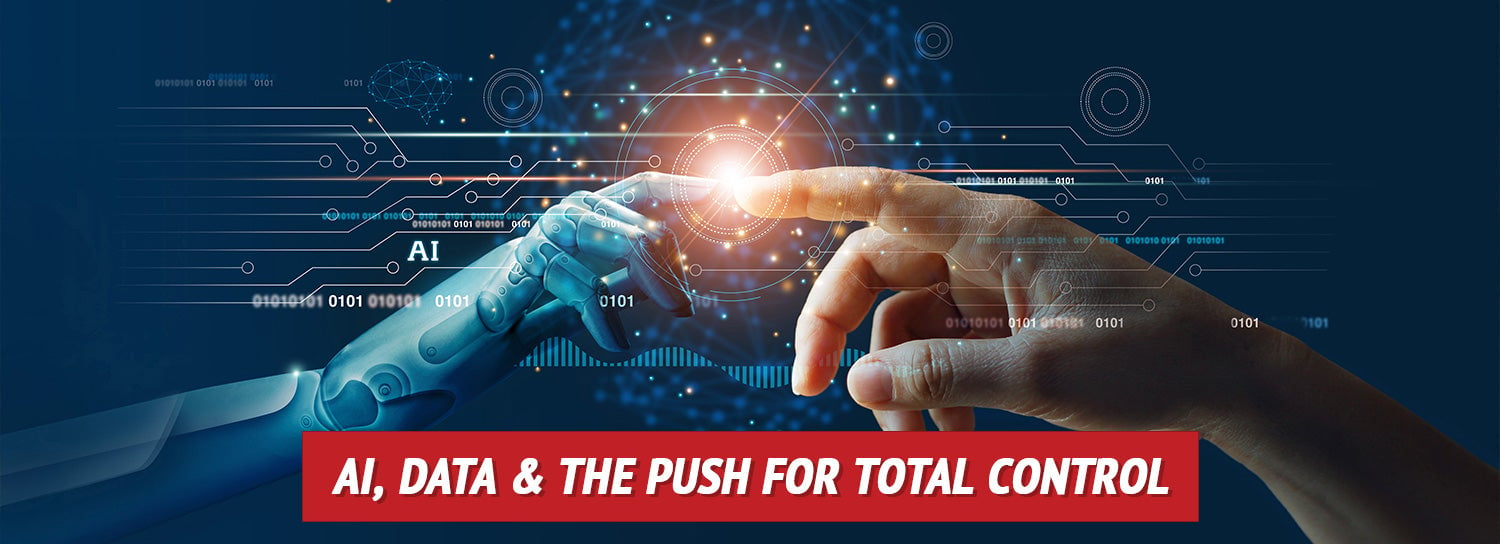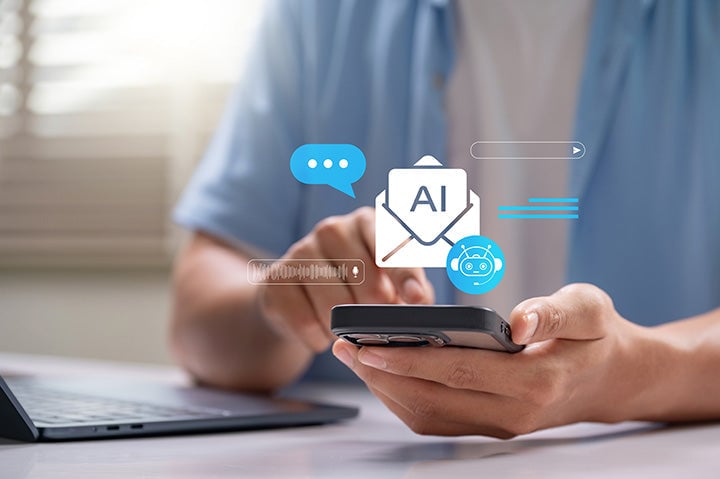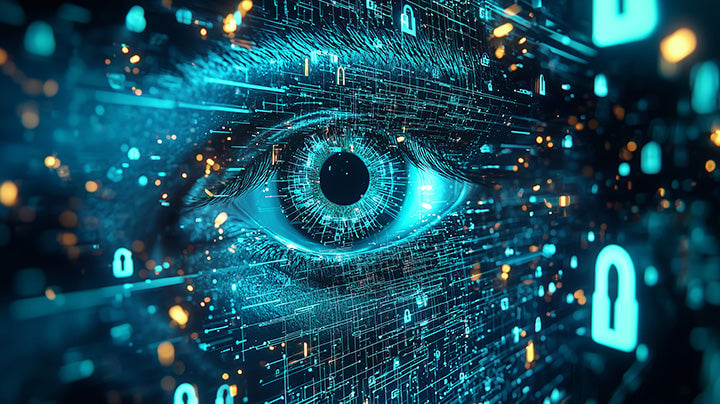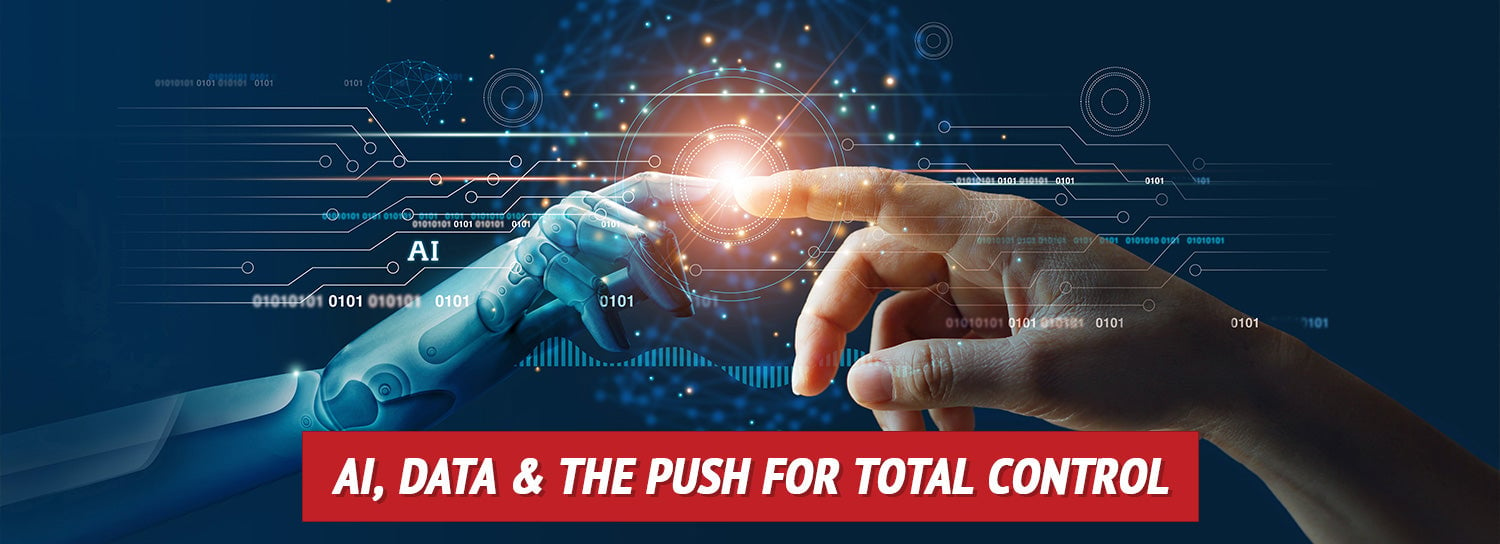
Quick Summary: AI, Data & the Push for Total Control
AI-powered systems and smart technologies are reshaping daily life. From digital IDs to surveillance grids, centralized control is replacing personal freedom. Governments and corporations now influence infrastructure, currency, and information—while your behavior becomes a data product. This article exposes real-world examples of AI-driven control and shares how you can prepare before ownership, autonomy, and access are all gated behind algorithms.
- How AI Is Reshaping Power, Privacy, and Control
- How Are AI and “Smart” Systems Already Controlling Us?
- Smart Cities
- Digital IDs
- CBDCs
- Corporate Consolidation
- How Are Digital Systems Gaining More Control Over Us?
- Centralize Control via AI and Smart Systems
- Digital IDs as Gatekeepers
- Predictive Systems Shaping Behavior
- Digital Currency and Financial Control
- Narrative Control through AI
- Subscription-Based Economy
- Surveillance and Loss of Privacy
- How Do AI and Smart Systems Undermine Personal Freedom?
- Why Will You Own Less in a Digitally Controlled Future?
- How Can You Prepare for a Future of AI and Digital Control?
How AI Is Reshaping Power, Privacy, and Control
According to AI and Its Implications for Data Privacy, “Everything you do generates data. When you like a picture, comment on a post, or connect your accounts to different platforms—you are generating data. Data is ‘the new oil’ and as such businesses use it to make informed decisions. In fact, data is so powerful, corporations such as Meta and Alphabet (Google) don’t even have a product – your data is the product.”
Let that sink in…
YOUR data is the product.
Behind the sleek promises of AI innovation and convenience lies a deeper question:
Who controls the data…AND who controls YOU?
As unelected tech elites race to build digital systems that monitor, optimize, and predict everything, the threat isn’t just automation—it’s centralized control, surveillance, and the erosion of personal freedom.
We need to face reality and understand how AI, digital IDs, predictive systems, and “smart” everything are quietly setting the stage for a future where we own nothing, and they own the grid, the currency, and the narrative.
How Are AI and “Smart” Systems Already Controlling Us?
I recently read a memoir by Sarah Wynn-Williams, the former global public policy director at Facebook.
She provided one example of how Facebook and smart systems use algorithms to target users in unethical ways.
Here is a synopsis from Rolling Stone (It’s long, but worth reading closely):

“[Wynn-Williams] discovered that the company was also courting advertisers with the option of targeting “thirteen-to-seventeen-year-olds across its platforms, including Instagram, during moments of psychological vulnerability when they feel ‘worthless,’ ‘insecure,’ ‘stressed,’ ‘defeated,’ ‘anxious,’ ‘stupid, ‘useless,’ and ‘like a failure,’ per a leaked document from a presentation to Australian brands. When the communications team considered a statement to the effect that Facebook wanted to ‘remedy’ such practices, one member noted that they really weren’t doing anything to prevent such exploitation: users could be targeted based on emotional states, as well as racial and ethnic background. Facebook went as far as tracking when teen girls deleted selfies so that a company could ‘serve a beauty ad to them’ right after.”
If Facebook has this sort of twisted power over teen girls, imagine the sort of power the elites will have when they combine AI with all the other smart technologies.
The convergence of AI, digital IDs, predictive systems, and “smart” technologies could pave the way for a future where individual ownership and autonomy are diminished, with control centralized among a few entities.
It has already begun.
Here are just a few examples.
Smart Cities
Projects like NEOM in Saudi Arabia show how elites (e.g., governments and tech firms) control urban infrastructure, with citizens as tenants of data-driven systems. NEOM is a controlled smart city.
According to the website, “NEOM is a unique investment opportunity, unrivalled anywhere else. This is not business as usual. Be a part of it. Invest in the new future now, invest in NEOM.”
[Related Read: The Danger of Smart Cities: They May Cost You Your Freedom]
Digital IDs
The EU’s eIDAS (Electronic Identification, Authentication and Trust Services) framework and India’s Aadhaar system illustrate how governments centralize identity management, often with private-sector involvement (e.g., tech firms handling biometrics).
CBDCs
Over 100 countries, including the US and China, are piloting CBDCs (Central Bank Digital Currencies).
China’s digital yuan trials show how transactions can be tracked and controlled in real time.
Look at a few of the ways China’s biometric, digital ID social credit system works:
- Lose points for bad driving
- Lose points for smoking in non-smoking areas
- Lose points for buying too many video games
- Lose points for posting fake news on social media
- Lose points for spending too long playing video games
- Lose points for spending money on frivolous purchases

If Chinese citizens lose points, they face restrictions, such as these:
- Restricting travel or the ability to purchase plane tickets
- Restricting luxury options, such as being banned from the best hotels
- Restricting home internet speeds
- Banning your kids from the best schools
- Having your pets taken away
Corporate Consolidation
BlackRock, Vanguard, and State Street own stakes in most major corporations, including tech and media, amplifying their influence over the systems driving this future.
We are also seeing corporate and government consolidation.
As Fast Company explains, “The Trump administration has tapped Palantir, a company that specializes in using AI for data analytics, to collate and analyze data about Americans. Meanwhile, Palantir has announced a partnership with a company that runs self-checkout systems. Such partnerships can expand corporate and government reach into everyday consumer behavior. This one could be used to create detailed personal profiles on Americans by linking their consumer habits with other personal data. This raises concerns about increased surveillance and loss of anonymity. It could allow citizens to be tracked and analyzed across multiple aspects of their lives without their knowledge or consent.”
How Are Digital Systems Gaining More Control Over Us?
I’ve already provided examples of how digital systems are gaining control over our autonomy, but it’s going to be more extreme and more rampant.
Here are the key reasons this could unfold:
Centralized Control via AI and Smart Systems
AI-powered “smart” systems (e.g., smart cities, IoT devices) collect vast amounts of data on behavior, consumption, and movement.
This data can be used to enforce compliance through automated systems, limiting personal freedom.
For example, smart grids could ration energy based on centralized algorithms, reducing individual control over resources.
National Geographic explains, “Control of [one’s] house’s electricity can be handled easily from a centralized location, without requiring a utility crew to go out to turn it on or off. […] In addition, some utilities have proposed the use of microgrids. These are groups of interconnected loads and sources that typically connect to the wider grid but can also be disconnected to operate autonomously as an ‘island.’”
So, if your neighborhood is using too much power, the higher-ups can turn you into a powerless island.
Digital IDs as Gatekeepers
Digital IDs, tied to biometric data or social credit systems, could dictate access to services, finances, or public spaces.
If linked to AI-driven platforms, they might restrict what you can buy, where you can go, or what you can say, effectively leasing access to life’s necessities rather than owning them outright.
For example, let’s say your digital ID identifies your political party. You may be restricted from buying a gun as you are deemed a “threat.”
Predictive Systems Shaping Behavior
Predictive AI, used in everything from policing to marketing, can manipulate decisions by anticipating and nudging behavior.
This erodes personal agency, as algorithms could prioritize corporate or state interests, steering you toward renting services (e.g., subscription-based models) over owning assets.
See the example above of Facebook targeting beauty ads to vulnerable teen girls.

Digital Currency and Financial Control
Central Bank Digital Currencies (CBDCs), paired with AI and digital IDs, could enable real-time monitoring and control of transactions.
Programmable money might limit spending based on compliance or social scores, undermining financial sovereignty and making “ownership” of wealth conditional.
See above for China’s digital yuan “reward” system for a better idea.
[Related Read: Central Bank Digital Currency Tyranny Is Coming: How to Prepare]
Narrative Control through AI
AI-driven content moderation and recommendation systems can shape public discourse by amplifying certain narratives while suppressing others.
This consolidates influence over information, reducing individual ability to challenge the dominant narrative or access unfiltered knowledge.
We have already seen the uptick in fake news and deep fake AI content.
When these narratives consistently are pushed, it becomes harder to distinguish truth from fiction.
Subscription-Based Economy
This one is terrifying, folks.
So pay attention.
Smart devices and AI services often rely on subscriptions (e.g., software, cloud storage, mobility-as-a-service).
This shift from ownership to access means you rent rather than own, with corporations retaining control over functionality and data.
For example, have you had to pay Google for more cloud storage for your emails, Google Docs, and pictures?
Guess who owns it? Not you.
Surveillance and Loss of Privacy
The integration of AI, digital IDs, and smart systems creates a surveillance ecosystem where every action is tracked.
This data can be weaponized to enforce compliance, limiting dissent and entrenching power over the “grid” (infrastructure, energy, data).
For instance, if you are using self-checkout at Target, be aware that they are using AI facial recognition technology.

How Do AI and Smart Systems Undermine Personal Freedom?
When all these data-driven systems combine, we are in danger of losing control.
Consider the following ways these systems will lessen individual control.
Loss of Autonomy: When elites own the grid, currency, and narrative, individuals become dependent on systems they don’t control. Dissent or non-compliance could mean exclusion from services or financial systems.
Wealth Concentration: Subscription economies and digital controls funnel wealth to those owning the infrastructure, widening inequality.
Note: As of June 2025, billionaires are buying AI stocks that analysts believe will soar by 240%.
Surveillance State: Constant monitoring through smart devices and digital IDs ensures elites know more about you than you do, enabling manipulation or coercion.
Why Will You Own Less in a Digitally Controlled Future?
The elites own more, while you own less.
Here’s why you will own less.
Physical Assets: Subscription models (e.g., car-sharing, software-as-a-service) replace ownership with access. You rent homes, vehicles, or even appliances, with terms dictated by providers.
Data: Your personal data—location, habits, preferences—is owned by tech companies or governments, not you. Even if you “opt out,” interconnected systems make escape nearly impossible.
Jennifer King, a privacy and data policy fellow at Stanford University, explains, “AI systems are so data-hungry and intransparent that we have even less control over what information about us is collected, what it is used for, and how we might correct or remove such personal information. Today, it is basically impossible for people using online products or services to escape systematic digital surveillance across most facets of life—and AI may make matters even worse.”
Financial Freedom: With CBDCs, your money’s usability depends on centralized rules. You don’t fully own your wealth if it can be frozen or restricted.
Here’s why the elites will own more (including you).
Infrastructure: Tech giants and governments own the “grid”—data centers, smart city systems, and communication networks. For example, Amazon Web Services hosts much of the internet’s infrastructure.
Currency: Central banks and partnered financial technology firms control digital currencies, deciding how and where money flows.
Narratives: By controlling AI-driven media platforms, elites shape what’s amplified or censored, owning the cultural and political discourse.
How Can You Prepare for a Future of AI and Digital Control?
Some argue these technologies empower individuals by providing convenience, efficiency, and access (e.g., digital wallets, smart homes).
But, consider this: ChatGPT creator Sam Altman has admitted he is “a little bit scared” of the potential of the technology and is preparing now.
In a profile with the New Yorker, Altman said, “I prep for survival […] I try not to think about it too much. […] But I have guns, gold, potassium iodide, antibiotics, batteries, water, gas masks from the Israeli Defense Force, and a big patch of land in Big Sur I can fly to."
If the creator of one of these prominent AI tools is scared and preparing, so should we.
- Be aware. Stay cautious. Don’t bury your head in the sand and ignore it. This is happening. Try to protect your privacy while also recognizing that the systems are already tracking you.
- Stock up on food. Don’t wait until you are forced to buy certain food products or prevented from buying proteins you like. Stock up on long-term emergency food today.
- Invest in your own power sources. Don’t be attached to your local power grid. Invest in personal solar power systems.
- Build a collection of tradeable goods. Have items on hand you can use for bartering, so your transactions aren’t tracked.
Don’t wait until it is too late, friends.
In liberty,
Elizabeth Anderson
Preparedness Advisor, My Patriot Supply



